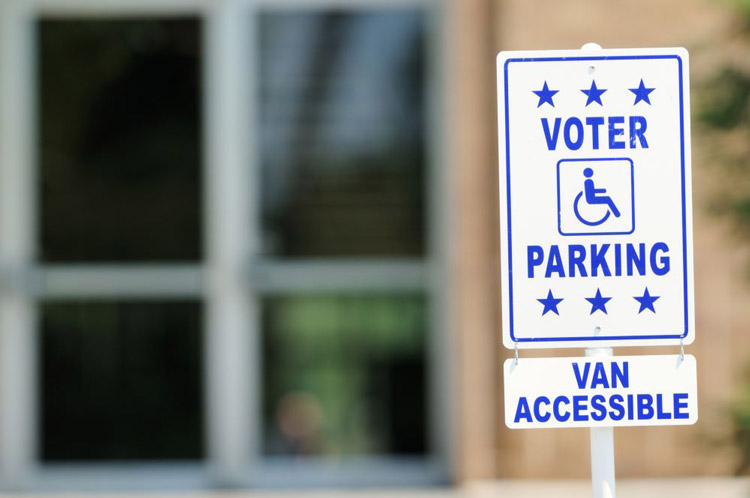Voting is at the heart of our democracy and our American way of life. It gives citizens age 18 and older a real voice in who their elected leaders will be and how our government works, and 2020 will be a big year with many choices. While voting shouldn’t be hard, for people with intellectual or developmental difficulties, there can be barriers that make it more challenging.
State and local governments are tasked with making it easier, thanks to a number of laws on the books, including the Americans with Disabilities Act. Fundamentally, the ADA requires governments to ensure that people with disabilities have a full and equal opportunity to vote. We really encourage you to read about it in detail here at the ADA site, so that you or a loved one understands what rights exist and where to go if you feel rights have been violated. Here are a few key takeaways:
Registration
States are required to make sure all aspects of the voter registration process are accessible to people with disabilities, and states can’t disqualify people solely because they may have a disability.
The National Voter Registration Act of 1993 requires that offices providing public assistance or state-funded programs that primarily serve people with disabilities provide registration support through distributing and helping people complete forms, and getting the forms to the right officials. In some cases, this can include assistance within a person’s own home.
Voting places
ADA requires that people with disabilities can physically access voting sites, whether they be at city hall, a church, a business or anywhere else. There’s a standard checklist that helps election officials understand whether their site fits the bill. (This includes areas outside the building, too, such as parking spaces.) Certainly a person with a disability could choose to have an absentee ballot mailed to them. That’s fine if it’s what they choose to do, but that can’t be the only option available to them. Additionally, poll workers are required to allow service animals to accompany voters.
Casting of ballots
The Help America Vote Act of 2002 states that if a location is conducting a federal election, voting machines need to be accessible to people who are blind or visually impaired. Voters’ privacy and independence must always be maintained. Poll workers must ensure the machines work and that election workers are fully trained on them. Additionally, the ADA requires officials conducting any elections to provide effective communication and auxiliary aids and services at every stage of the process, from registration through casting a ballot.
Candidates and the issues
The mechanics of voting are important. So is understanding candidates’ stances on a variety of issues, including disability matters. For an interesting perspective on what people with disabilities want from candidates, check out this article from a Forbes contributor who has had lifelong disabilities.

